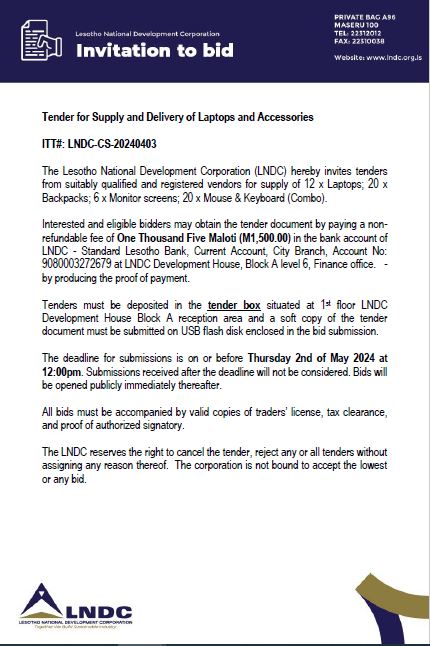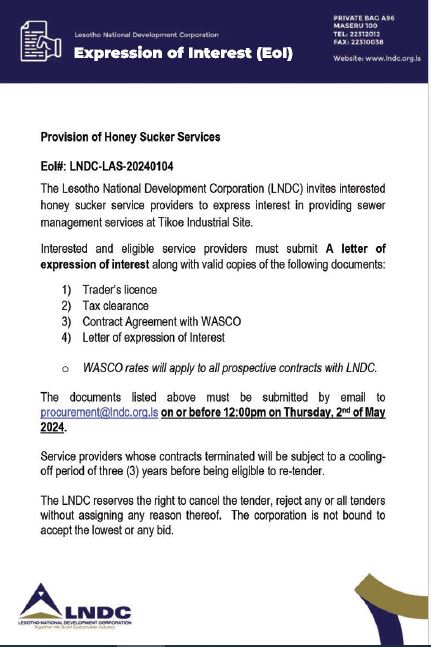Mohloai Mpesi
The suspended Director General of the Directorate on Corruption and Economic Offences (DCEO) advocate Mahlomola Manyokole said the tribunal squanders the States money illegally.
According to his legal representative advocate Tekane Maqakachane, the three-membered tribunal mandated to test Manyokole’s fitness to continue holding office was not tabled before the National Assembly 15 days after last year’s Christmas break slump, dating to March 26 this year.
Maqakachane raised a point of law last week before he complained about the Covid-19 vaccination effects, imposing the dates of the tribunal back to this week. On Tuesday Maqakachane said the legal notice 139 which established the tribunal ought to have been tabled before parliament from February 15, 2021.
The matter was presided by the retired High Court judge, Justice Teboho Moiloa, retired Justice Semapo Peete as well as the High Court judge, Her Ladyship, Polo Banyane
He shifted his argument into the financial element where he cited that the panel is consuming the States money unlawfully as there is no instrument recognised to fund the tribunal members, administration staff and other components.
“Looking at the content, the honourable tribunal will have to determine whether the legal instrument is executive or legislative or administrative. Whether it is executive or legislative, it is the matter of both definition and interpretation which we have attempted to do,†he said.
“We also look at the constitutional super structure around issues which are very relevant and are contained in the legal notice concerning subordinate legislation and its impact on the finances or public funds and one of the defining characteristics of the legal notice is that it actually prescribes number reasons that have impact on the public funds,†he said.
He said the legal notice was promulgated by the Prime Minister Dr Moeketsi Majoro acting on representations of the former Minister of Justice and Law, Prof. Nqosa Mahao.
“So it was not just a determination but it was based on issues that the minister put before the Prime Minister and the premier appointed three-membered tribunal.
“It actually stipulated when to take effect and describes a period when the tribunal has to file the report of the findings and recommendations. The most important thing is that it prescribes the rights, powers, discretion, privileges and authority of the member of the tribunal.
“It prescribes substantive matters of rights which were not there, and also obligations to the tribunal so that the attorney general should assist the tribunal and authorize the engagement of experts. It creates a secretariat of administrative staff and obliges the secretariat to assist the tribunal in the performance,†he said.
“Once there is a secretariat, it grants the power to the tribunal to hire and employ administrative staff and in employing the administrative staff it grants the remuneration of the tribunal and the authority that the minister of justice in consultation with the minister of finance will determine the rate of remunerations of the members of the tribunal.
“It is not an appropriation act for withdrawal of amount of money for the purposes of the tribunal or administrative staff. Apart from the consolidated funds, there cannot be any issuance of withdrawal of funds or any charge be placed on such funds except by the authority of the constitution or a specific act,†he said.
“This legal notice is the only authority upon which the State funds should be used to make the charges of the tribunal. As of December 24, 2020 when this charge for the purpose of the tribunal is made there was no existing Appropriation Act which allocated for the financial year budget. There is no budget for the tribunal,†he said.
However, Justice Teboho Moiloa who chairs the tribunal quizzed whether Maqakachane emphasizes the point that the premier is out of the statutory budget.
“It doesn’t have to be the budget for the tribunal, it is a budget for the Prime Minister there may be heads specifically for certain projects. There is always a head called contingency, now if the minister applied his contingency budget in order to meet this particular task are you saying the Prime Minister is outside of the statutory budget?†he asked.
The latter responded that the contingency fund has a regulation under the Public Financial Management and Accountability (PFMA) that the funds under contingency fund are for matters that arise and which were for urgent nature had not been budgeted.
“Contingency funds are for those urgent and unforeseen circumstances and there is no provision in for the authorisation of the provision, but once you have a reason which says this is going to be done this way, it is not part of contingency but a supplementary because there is authority for that,†he said.
In the meantime, Justice Semapo Peete questioned whether Maqakachane’s argument is on the fact that the tribunal does not qualify under either the constitution or the PFMA.
In reply, Maqakachane indicated that there is a provision for utilisation of funds under legal notice for the purpose of the tribunal and that it does not qualify.
On the flip side, the opposition led by advocate Kuili Ndebele reacted that the tribunal could determine the matter as it ought to be determined by the High Court.
“The notice in issue is an executive instrument and looking at the provision of section 27 (a) of the Interpretation Act, the legal notice in issue is not a subordinate law referred to under the particular section.
“The tribunal’s mandate has been made by the legal notice itself to investigate the fitness of Director General of the DCEO and report its findings to the Prime Minister. The legality of the legal notice is the issue that falls beyond the powers or the jurisdiction; we submit that the tribunal cannot determine that issue. Our submission is that the point made by the applicant is something that could be presented before the competent jurisdiction like high court.
“We are saying whether point of law, the tribunal cannot determine this issue,†he said.





